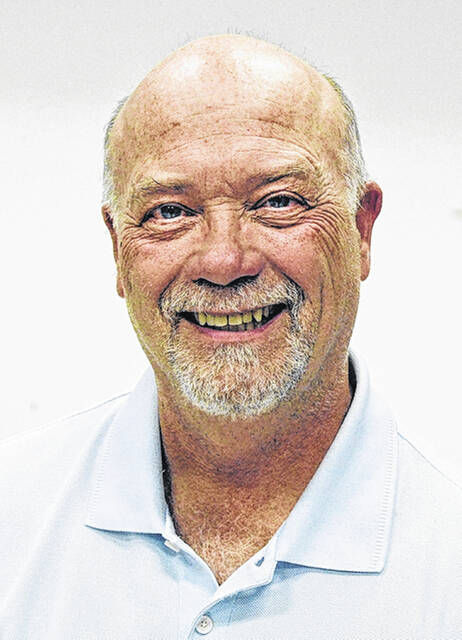Despite the massive disappointment this football season has been for me as a Browns fan, I do get a bit more enthused about the sport during the run up to the Super Bowl, which, of course, will take place next Sunday at SoFi Stadium in Inglewood, California, with kickoff slated for 6:30 p.m.
As a working man, I object to the slotted Sunday evening game. You’d think since it’s the last game of the NFL season, the league would consider, say, playing the game the day before, to allow for a little more social activity without compromising back-to-work Monday. However, I’ve been waiting 56 years for this change, so I’m pretty sure it’ll never be in the cards and will keep my viewing record pristine by watching yet again.
Since I’m in the football frame of mind, I’d like to tell you a story this week about a coach of whom you’ve probably never heard that had as unique a coaching style as you’re ever likely to see.
Since I’ve done some coaching and have worked under some excellent coaches, with Hall of Fame former Allen East football coach Bill Goodwin at the top of that list, and spent countless hours with College Football Hall of Fame coach Dick Strahm, whose teams won four NAIA national championships in writing his biography “Just Call Me Coach”, I’ve some insight into several different coaching philosophies.
Although Coach Goodwin, much like his mortal-lock future Hall of Fame son, Tim, Marion Local’s 12-time state championship-winning football coach, was exact in articulating his expectations while at the same time doing it without ranting and raving, the stereotype of a successful football coach is one who tends to be pretty hard-nosed in how he prepares his troops.
Today’s brief tale really isn’t about a coach who fits that stereotype. Rather, it’s about one who didn’t treat any in-season off-the-playing field distraction as the anathema so many other coaches do who demand players have tunnel-vision focus on the sport.
His name was Roland Ortmayer, who coached for 42 years at the University of LaVerne in California, a Division III school about 30 miles east of L.A., before his retirement in 1990. Ortmayer, who died at 91 in 2008, had as unorthodox an approach to coaching football as anyone you’re likely to find.
While his career record of 183-209-8 would hardly be acceptable to either of the two Goodwins or Coach Strahm, those who feel the most successful coaches are the most demanding would have to wonder how Ortmayer’s teams managed to win 183 games.
Despite the career record, Ortmayer has been inducted into the NAIA Hall of Fame and is regarded by many a former player as one of the most influential people in their lives. Lest you think he was lazy or disinterested, Ortmayer immersed himself in every aspect of his football program, from lining the football field to washing the socks, jocks and uniforms of his players to helping clean the stands after home games. Ortmayer also served as LaVerne’s athletic director, coached track each spring and taught up to 10 physical education classes each semester.
His coaching philosophy was distinctively un-Bill Belichick-ian, that winning should never come at the expense of fun. While Ortmayer certainly was trying to win, he refused to worship at the victory altar and really was pretty much fine with whatever the result was after a game.
During his tenure, there were no long practices. His began at 3:45 p.m. and always ended at exactly 5:30, and, get this, practices were not mandatory! If there was a player who needed to study for a big test or had a paper due or even one that was having girlfriend issues or another that just needed a mental-health day, he could take the day off.
On any given day, there were anywhere from six to 15 players missing. Whoever showed up was who Ortmayer coached. After all, he felt, it was the players’ decision to play, not his.
Other unconventionalities included no mandatory weight training in the off-season, which he felt absurd, since there was enough physical exertion living day to day for his young charges that any artificial endeavors to create even more exertion was superfluous. Additionally, Ortmayer didn’t have a playbook, feeling using one restricted creativity. He simply had his team run the plays players knew from practice, at least the players who were there!
Former players often kept in touch with Ortmayer through the years, sharing their successes and occasional failures with the man so many regarded as so very influential. In a Sports Illustrated feature of Ortmayer that ran in the college-football preview edition in 1989, one which can be accessed online at SI.com, in the “Sports Illustrated Vault” if I’ve piqued your interest today, perhaps the title of writer Douglas A. Looney’s piece describes Ortmayer both succinctly and aptly, “A Most Unusual Man.”
So, as you fill your plate with football and listen to the passionate exhortations of coaches who preach, as former New York Jets and Kansas City Chiefs head coach Herman Edwards once famously said so sternly in a post-game presser, “You play to win the game,” please give a quick passing thought to Ortmayer, indeed, given the stereotype of his profession, “a most unusual man.”
John Grindrod is a regular columnist for The Lima News, a division of AIM Media Midwest, a freelance writer and editor and the author of two books. Reach him at [email protected].






